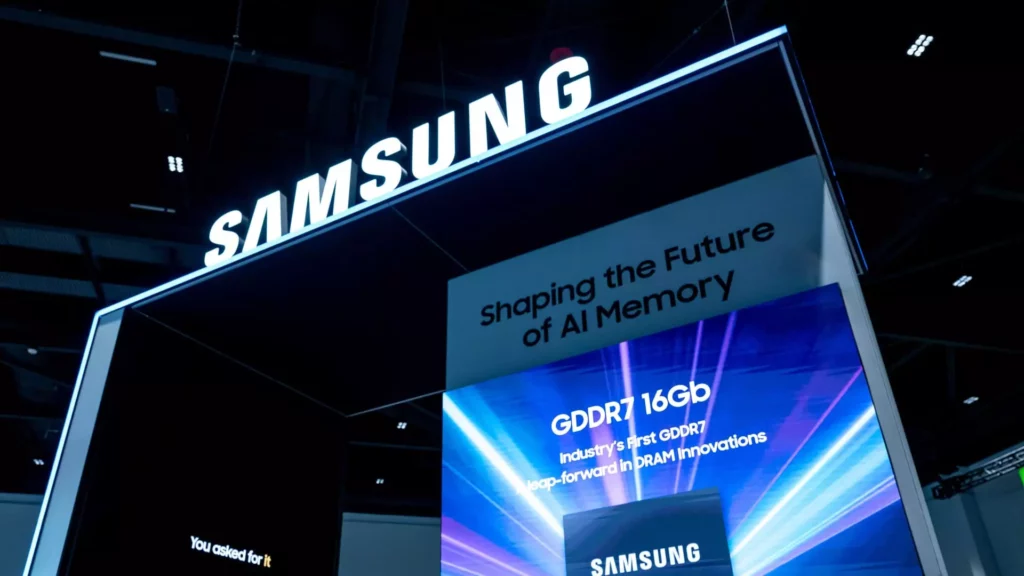For years, Samsung Electronics has been heralded as an indomitable titan in the technology sector, a symbol of innovation and operational mastery within semiconductors and consumer electronics. Yet, beneath this veneer of strength lies a sobering reality: even giants are not immune to the accelerating tides of change that threaten their dominance. Its recent profit plunge of over 50% in the second quarter is more than a mere financial hiccup; it is a critical indictor of systemic vulnerability rooted in strategic complacency. The once-invincible conglomerate’s inability to adapt swiftly to technological shifts and geopolitical constraints exposes a fundamental flaw—overreliance on legacy assets and outdated approaches. The industry’s fragile heart beats louder, warning us that today’s titans are as susceptible to obsolescence as their smaller competitors, especially when their strategic foresight lags behind disruptive forces.
The Symbol of Technological Decline: AI Chip Strategy Failures
Central to Samsung’s current crisis is its faltering grip on the ever-expanding AI chip market—a domain where Nvidia has established an unassailable lead. While Samsung invested heavily to catch up by developing high-bandwidth memory (HBM) products, its efforts have been marred by delays and technical hurdles. This failure to quickly certify and mass-produce competitive offerings highlights an alarming oversight: technological superiority is meaningless without efficient execution. Nvidia’s dominance in AI chips, fortified by strategic partnerships and relentless innovation, exposes Samsung’s strategic shortcomings—particularly its underestimating complexities of advanced chip fabrication and supply chain intricacies. The company’s delays are symptomatic of a broader failure to innovate with agility, revealing that technological ambitions cannot substitute for meticulous operational execution. Meanwhile, geopolitical restrictions—specifically U.S. export controls to China—further strain Samsung’s chip ambitions, underscoring how external political currents can cripple even well-established global players.
The Collapse of Market Power and Resilience
Despite its turbulent recent quarter, Samsung’s stock managed a surprising rally—up over 16% in 2023. However, this apparent resilience is a veneer masking deep-rooted vulnerabilities. The company’s core foundry business, once a lucrative revenue stream, is struggling amidst waning demand and relentless competition from Taiwanese giant TSMC. This competitive pressure is not merely a matter of market share but of strategic relevance; TSMC’s leadership in advanced manufacturing technology continues to widen the gap. Samsung’s recent directives to cut staff by 30% globally underscore an urgent shift from aggressive expansion to operational efficiency—signaling that the days of growth-at-all-costs are over. This strategic pivot highlights a critical realization: surviving the present upheaval requires ruthless cost management and a willingness to adapt or perish. Yet, hope remains that with heavy investments in R&D and strategic alliances, Samsung can pivot into emerging markets and innovative applications beyond standard memory and smartphones.
The False Promise of Technological Superiority
The narrative that technological leadership guarantees survival is fundamentally flawed. Samsung’s delayed product certifications and technological missteps serve as a stark reminder that innovation must be paired with flawless execution. Nvidia’s market disruptor role is a case study in how a single company’s relentless focus on innovation, strategic partnerships, and supply chain mastery can destabilize existing industry hierarchies. Samsung’s predicament is a warning against complacency—a call to embrace agility and proactive strategic planning. In an era where geopolitical realities and rapid technological change collide, relying solely on past successes or core competencies is suicide. Companies like Samsung need to recalibrate their strategies, invest intelligently in future technologies, and move beyond traditional markets if they hope to retain relevance.
Industry’s Reckoning: Adapt or Fade Into Obscurity
The fast-paced evolution of the semiconductor industry leaves no room for stagnation. The dominance of Nvidia and the shift toward AI-driven markets illuminate a brutal truth: adaptability is the only sustainable differentiator. Samsung’s experience underscores that technological prowess is just one facet of a complex equation—supply chain agility, strategic alliances, geopolitical awareness, and operational efficiency are equally vital. The industry’s future belongs to those willing to shed complacency and embrace a mindset centered on resilience and foresight. For Samsung, the current crisis is a wake-up call: survival depends on whether it can transform setbacks into opportunities, innovate with strategic precision, and navigate changing geopolitical waters with deftness. In this brutal landscape, only the most adaptable will endure, and Samsung’s recent failures serve as a sharp reminder of what happens when strategic agility is sacrificed at the altar of tradition and overconfidence.









Leave a Reply